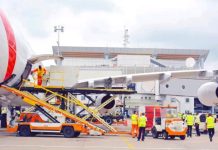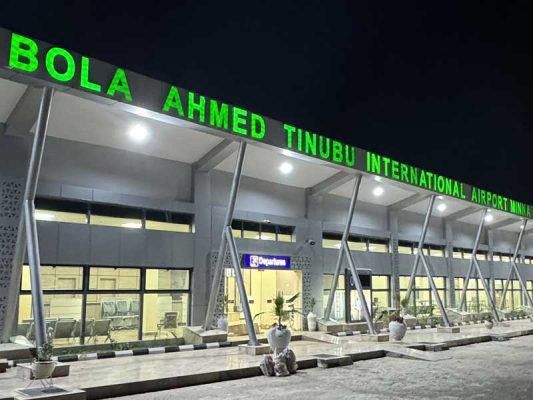The Federal Government has officially designated the Bola Ahmed Tinubu International Airport in Minna, Niger State, as the alternative airport to Abuja’s Nnamdi Azikiwe International Airport.
The announcement was made by the Minister of Aviation and Aerospace Development, Festus Keyamo, during the inauguration of commercial flight operations by Overland Airways at the newly upgraded facility.
Keyamo said the airport’s modern infrastructure, international-grade runway, and proximity to Abuja make it well-suited for handling overflow or emergency diversions. “A Boeing 747 or triple seven can land here without issue. This airport is no longer underutilised—it’s now part of our national aviation strategy,” he said.
Following the declaration, the Nigerian Civil Aviation Authority (NCAA) and the Federal Airports Authority of Nigeria (FAAN) have been directed to begin immediate coordination to operationalise the designation. The move is expected to ease pressure on Abuja’s airport during maintenance or high-traffic periods.
Located just 150km from Abuja, the airport was renamed in March 2024 as part of a federal initiative to honour national leaders. Overland Airways became the first commercial operator to resume flights from the airport, offering services to Lagos and Abuja using a brand-new Embraer E-175 aircraft.
Governor Mohammed Umar Bago expressed gratitude to President Tinubu for supporting the airport’s revival, calling it a fulfilment of a long-standing dream for the state. He revealed plans to develop an “Airport City” with infrastructure to support logistics, tourism, aircraft repair services, and cargo operations.
Overland Airways CEO, Captain Edward Boyo, praised the Tinubu administration for driving aviation reform through the Renewed Hope Agenda and pledged full support for expanding air connectivity in the region. “This flight marks the beginning of restoring vital economic links for Niger State,” he said.
The development is seen as part of a broader strategy to decentralise Nigeria’s aviation infrastructure and boost regional accessibility and economic growth.
















